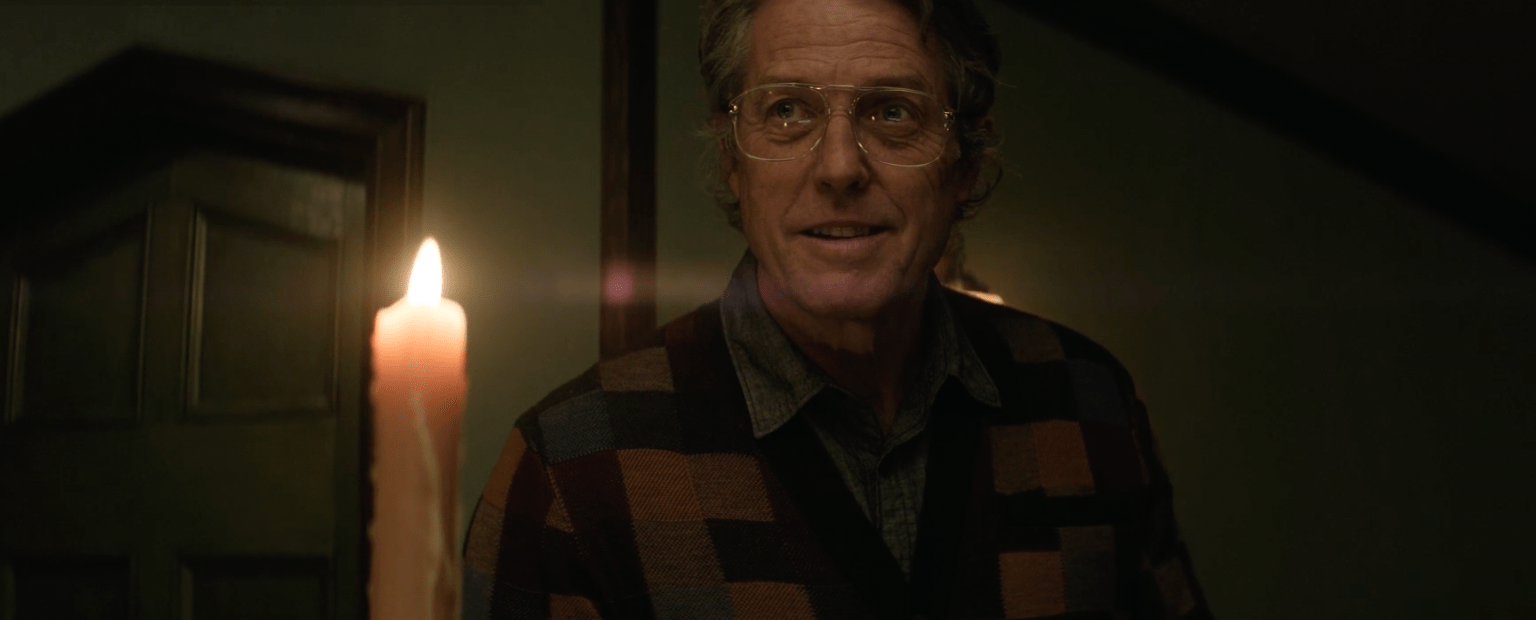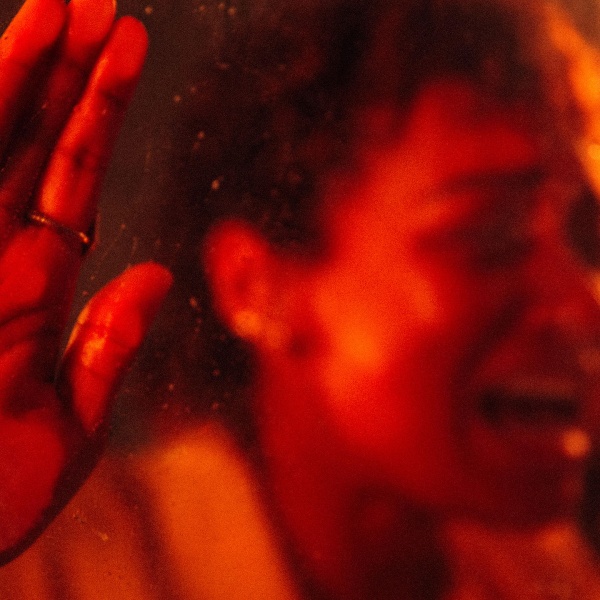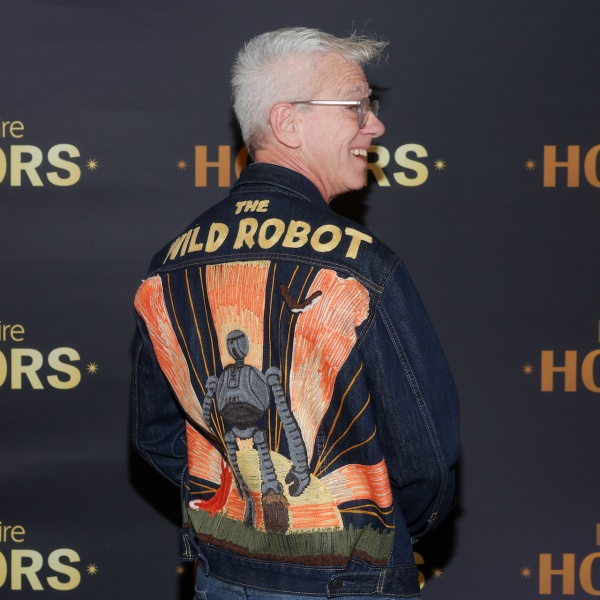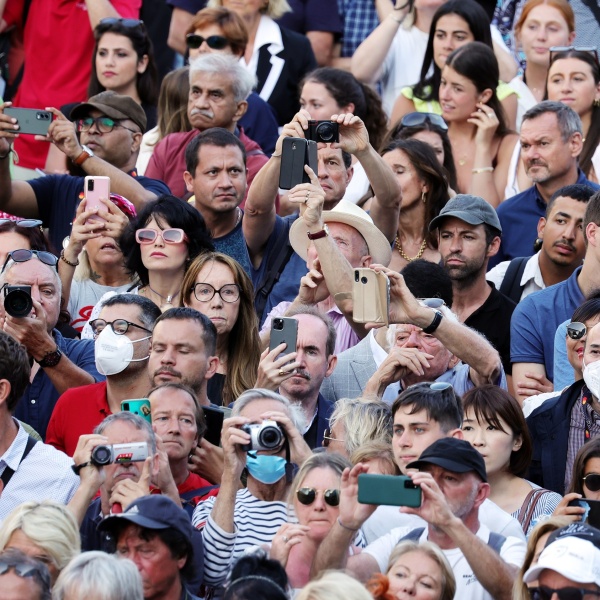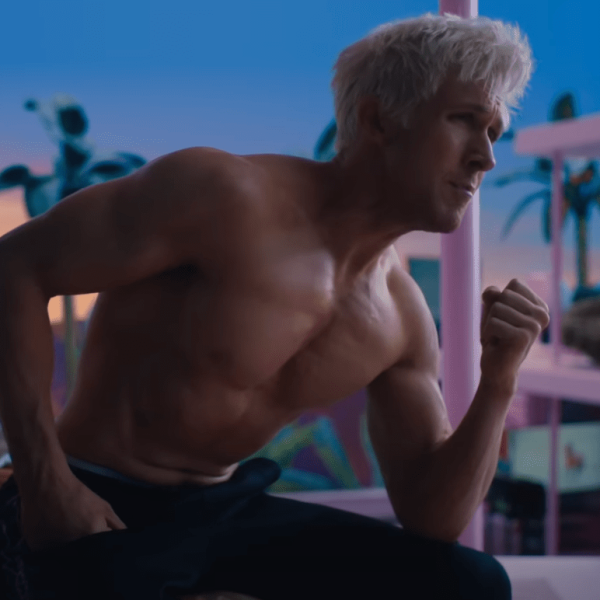“Heretic” co-writers and directors Scott Beck and Bryan Woods are worshiping at the altar of A24, especially amid the blasphemy of using AI in films.
The “A Quiet Place” screenwriters told Variety that A24 fully supported the inclusion of an end-credits message saying that “no generative AI was used in the making of this film” to point to the practical effects of the indie horror feature.
“Heretic” opens in theaters November 8, and stars Hugh Grant as a theological scholar who preys upon two Mormon teen missionaries, played by Sophie Thatcher and Chloe East.
“As far as we’re aware, they’re absolutely fine with it,” Beck said about A24 backing the AI message in the film. “They’re a studio that is incredibly artist-friendly in the best sense possible. They’re a home where you feel like you’re working with human beings, you’re not working with algorithms, or ‘How does the test score dictate the rollout of a movie?’ That human touch that they have we absolutely respect, and we are in a time where I feel like creatively we’re in one of the big ethical battles, and the race is already ahead of us.”
Beck continued, “The importance is to have these conversations before they force things in, just because it makes sense from a corporate structure. It’s incredibly dangerous. If there’s not people to throttle it, we’re going to find ourselves in five to ten years in a very dangerous situation.”
A24 had no comment, but a source close to the studio stated that the company does support their creators first and foremost.
Beck’s co-writer/director Woods deemed AI an “amazing technology” that should be buried “underground with nuclear warheads, ’cause it might kill us all.” He added that generative AI is merely “an algorithm jumbling a bunch of shit together and then spitting it out as art. It’s not human and it’s borderline theft on some level.”
And Woods did not want any “Heretic” audiences thinking that the film was part of that “theft.”
“We have no illusions that when people watch ‘Heretic’ they’re going to go, ‘Wait, did they use generative AI?’” Woods said. “It doesn’t feel like that at all, but it was important for us to put that out there because we think it’s something people need to start talking about.”
Woods also questioned how generative AI could even be “legal.”
“I think this idea that an algorithm can just scrape all of human history and art off the internet, repackage it, regurgitate it, spit it out and somebody else can use that to create profit … I don’t know why that’s legal,” he said. “It’s important for people to start talking about the need for human intersection in art, business and every facet of this life, because we’re on the precipice of every job on planet Earth being replaced overnight. It’s going to happen so fast. And it’s easy for it to happen in the arts. We’re in a business that is exceptionally greedy. Decisions are made for the bottom line and not for the good of the artistic process.”
A24 also was part of another recent AI debate with upcoming film “The Legend of Ochi.” The first trailer for the fantasy adventure feature soon had audiences questioning whether or not AI was used in production. Writer/director Isaiah Saxon, who makes his directorial debut with the film, took to X to explain how animatronics, puppetry, and more effects were utilized in lieu of AI.
“I’ve been making handmade films that feel painted since 2005. Along came AI, and now we have crusaders like you shitting on people who’ve dedicated their life to craft,” Saxon wrote to one Twitter user.
He added, “Six years of handmade work: puppets, animatronics, matte paintings, and a bit of 3D animation. No AI. There’s the statement.”
A source close to A24 also confirmed to IndieWire that the film was handmade.
